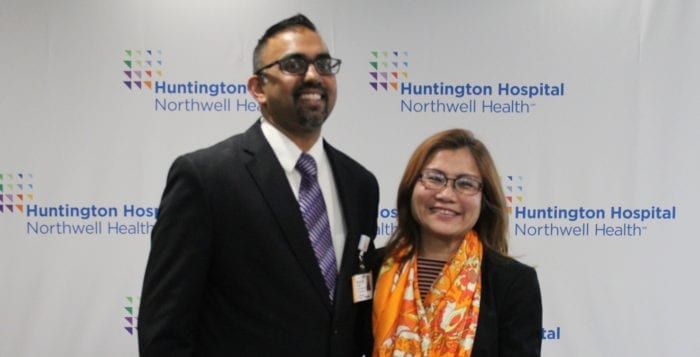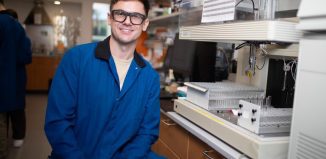Huntington Hospital launches program to identify human trafficking
Pilot programs aimed at identifying and aiding trafficking victims and potential targets

Huntington Hospital is taking the first step toward helping its health care workers better identify and aid human trafficking victims in the community.
Dr. Santhosh Paulus, a hospitalist at Huntington Hospital, will launch a pilot program for Northwell Health aiming to train hospital staff how to recognize and then provide support to human trafficking victims.
“Six months ago, when I was asked to join a human trafficking task force I said, ‘Gee, that’s interesting. I’m here 19 years and I’ve never come across a patient involved in human trafficking,’” said Judy Richter, a social worker at Huntington Hospital. “We have been missing quite a few patients as we had not been trained in how to recognize the signs or what we can do to help them.”
“We need to promote humane work in hospitals. This is the front line to identify victims.”
— Shandra Woworuntu
In December 2017, the former owner of the Thatched Cottage in Centerport was indicted on federal charges for allegedly illegally trafficking workers from the Philippines.
Paulus and his approximately 30-member task force is undergoing training from Restore NYC, a nonprofit organization whose mission is to end trafficking in New York. The task force will then train the hospital’s emergency room department and ambulatory center in recognizing signs of both current victims and potential victims.
“Labor trafficking in agriculture or the restaurant industry looks so different from sex trafficking,” Paulus said, noting human trafficking occurs in more than 25 different trades. “There are so many avenues of how you can be trafficked, there’s no simple answer.”
Some signs physicians will look for are patients seeking treatment accompanied by another individual who is holding onto a patient’s documents and identification for them, answering all questions for them, avoiding eye contact and certain tattoos.
“Human trafficking victims are hard to identify because it’s hidden, you cannot see it with plain sight,” said Shandra Woworuntu, a member of the U.S. Council on Human Trafficking. “Sometime, they walk around. When [my captors] escorted me around, nobody saw me.”
“Human trafficking victims are hard to identify because it’s hidden, you cannot see it with plain sight”
— Shandra Woworuntu
As a sex trafficking survivor, Woworuntu spoke to hospital staff Jan. 12 to share her personal perspective. The former bank manager and money market trader came to the United States at age 34, when religious persecution made her feel unsafe in her home country of Indonesia. She arrived at John F. Kennedy Airport through an employment agency that promised her a $5,000-a-month job working in a Chicago hotel. Instead, her passport was seized and she was abducted into a sex trafficking ring operating out of Queens.
“[My captor] demanded from me $30,0000 to be free,” Woworuntu said. “I was compliant due to the abuse, the violence, guns and knife.”
She would make her escape by climbing through a second-story bathroom window. However, Woworuntu said she faced skepticism when initially seeking help from New York City police, churches and even the Indonesian consulate. When brought to a hospital, she recalled screaming as physicians examined her because she didn’t speak any English and wasn’t fully informed what procedures were being done.
“Even if I came from a place that was dirty, I am still human,” Woworuntu said. “We need to promote humane work in hospitals. This is the front line to identify victims.”
As a survivor, Woworuntu hoped sharing her story with Paulus and other Huntington Hospital would help staff members to treat victims with dignity. She now runs Mentari, a 501(c)(3) organization in New York that provides support, basic necessities and vocational training for trafficking victims.






